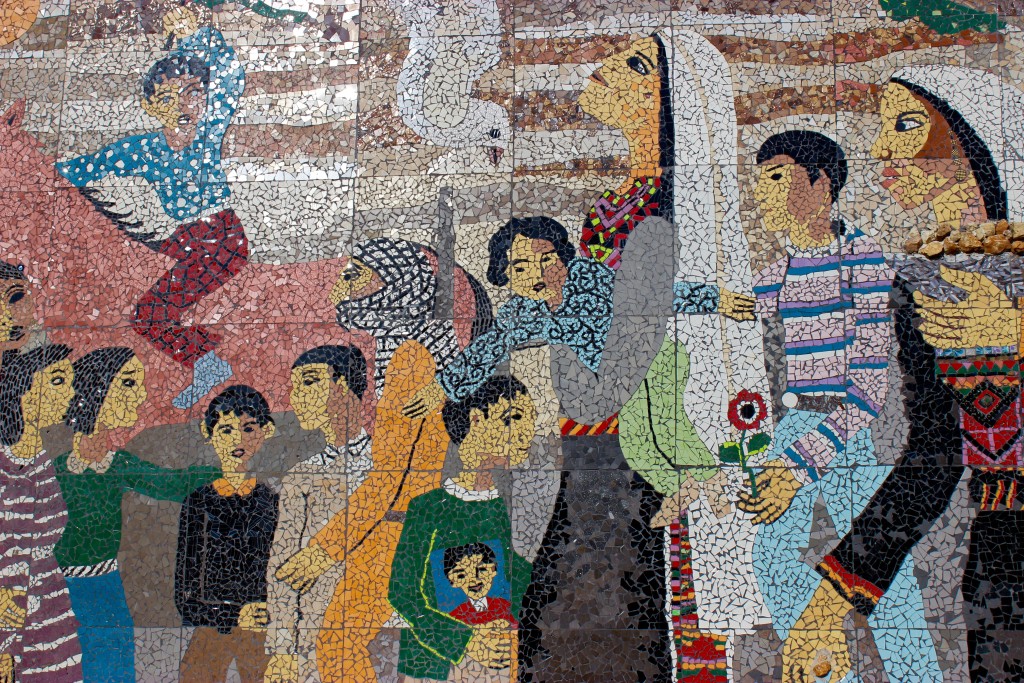by Stephanie Breitsman
The meeting on February 10, 2015, between Swedish Foreign Minister Margot Wallström and Palestinian President Mahmoud Abbas, presented an opportunity to reshape the international community’s approach to the Israeli-Palestinian conflict. Sweden’s relationship with Palestine should not be seen as a stance against Israel, but instead recognized as an invitation for global partnership and cooperation. Sweden became the first member of the European Union to recognize the state of Palestine on October 30, 2014. Britain, Ireland, Spain, and France have all passed non-binding resolutions accepting Palestinian statehood in the past year. Contrary to Israeli fears and American frustration, strengthening ties with Palestine could revive the peace process.
Wallström has pressured Abbas to prioritize the inclusion of women in the process of Palestinian state-building. Sweden is increasing its aid to Palestine to $180 million (USD) over the next five years contingent on a Palestinian commitment to increased gender equality. In her talks with the Palestinian leadership, Wallström has emphasized women’s representation in peace negotiations, the position of women in society, and the equitable distribution of resources. Sweden’s recognition of Palestinian statehood aims to nurture an environment necessary for producing effective peace partners through the meaningful participation of women.
This year marks the 15th anniversary of the adoption of the United Nations Security Council Resolution 1325 (UNSCR 1325), which declares women to be necessary actors in achieving global peace and security. The United States, among many other NATO partner nations, has committed itself to supporting the participation of women in all peace efforts. The United States National Action Plan on Women, Peace, and Security, announced in December 2011, asserts that “deadly conflicts can be more effectively avoided, and peace can be best forged and sustained, when women become equal partners in all aspects of peace-building and conflict prevention, when their lives are protected, their experiences considered, and their voices heard.” Sweden’s foreign policy provides a model for the United States to put their written commitments into action and further the Israeli-Palestinian peace process.
Using foreign assistance for political leverage is common practice in the region and will likely be a condition for resolving the Israeli-Palestinian conflict peacefully. The failure of United States Secretary of State John Kerry’s peace talks, in 2013-2014, reduces the political leverage that can be used. That said, international recognition of Palestinian statehood renews diplomatic options by incentivizing foreign aid and political cooperation. Following Sweden’s example, the United States should advocate for the promotion and inclusion of women in governance, security, and civil society in exchange for further assistance. Recognizing Palestinian statehood presents an opportunity to address dynamics within the Palestinian Authority and influence positive change; it should not be missed.
Palestinian women are an untapped resource. They have largely been absent from official negotiations, but they provide an important and moderate presence on the ground. In “A Quiet Revolution: The First Intifada and Nonviolent Resistance,” Mary Elizabeth King, an expert observer, details women’s influential participation in civil society. After the 1967 war and the occupation of the territories, Palestinian women formed a network of work committees providing important social welfare services that were not being fulfilled by Israeli or Palestinian authorities. Women’s organizations participated in a range of activities including traditional charities, labor unions, education, and activism. Ghada Talhami, a Palestinian political scientist, compares the function of these organizations, during the period between 1967 and the Oslo Accords in the 1990s, to an informal government. Aiming to liberate both themselves and the burgeoning state, these women built self-sustaining local and national networks that crossed socioeconomic divides.
Western powers, particularly the United States, must put aside past policy failures and embrace a promising alternative. Confining the peace process to the same isolated political players limits the resources for both creative solutions and implementation. Women's organizations bridge economic, social, and political divides through education and activism. Women’s inclusion may offer a new set of actors with a new set of ideas and solutions. Palestinian women may provide positive contributions that can break through the deadlock in the negotiations. Furthermore, including civil society and women increases the likelihood that any peace agreement would be implemented effectively.
The Israeli-Palestinian peace talks are at an impasse, which threatens security in the region. Palestinian statehood and foreign assistance can be exchanged for the inclusion of women, which could positively alter the dynamics of the Israeli-Palestinian relationship. Respecting Palestinian statehood opens the door to develop more productive relationships with the Palestinian people and nurture new avenues for peace. It's time to stop picking sides and start embracing new partners.
Stephanie Breitsman is a master’s candidate at the Institute for Middle East Studies in GWU’s Elliott School of International Affairs and specializes in conflict and conflict resolution.

